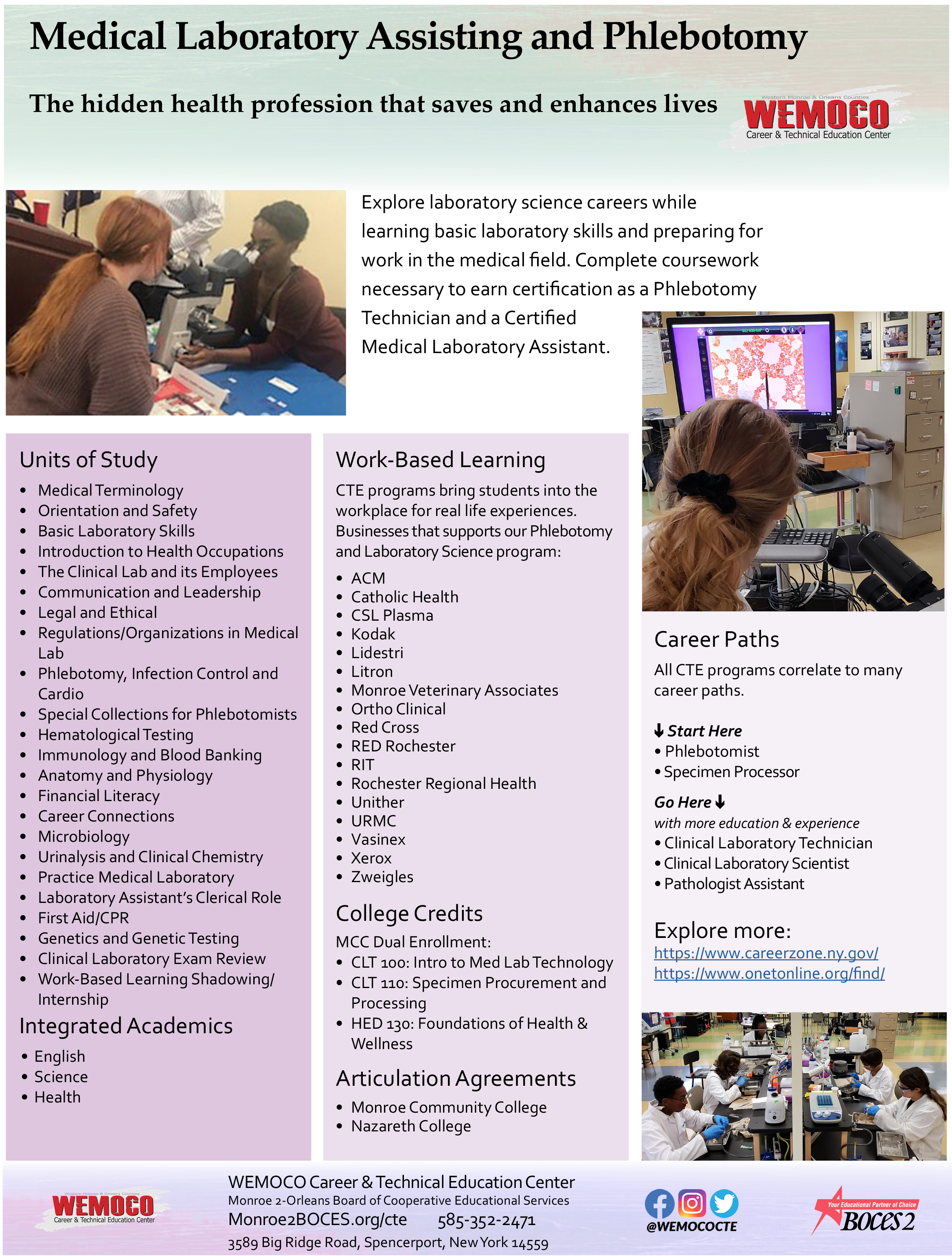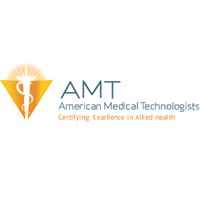

Graduates of the program are automatically eligible to sit for New York State Licensure and national certification examinations.Īt the end of their studies, students will also complete clinical training (360 hours) in hospital laboratories affiliated with the program to provide hands-on experience as well as excellent training for immediate employment. Wherever they work, the technicians and technologists in this field share a strong desire to help others, a love of challenge and responsibility, and the ability to complete a wide variety of scientific tests accurately and reliably.Ĭlinical Laboratory Technology at SUNY Broome Community College is a fully-accredited, clinically-based curriculum leading to the Associate in Applied Science (A.A.S.) degree. Technicians may advance through education to levels of Clinical Laboratory Technologist, Specialist or Laboratory Director through earning a Bachelor’s, Master’s or Doctoral degree.

Clinical Lab Assistants are a vital part of the laboratory and work closely with phlebotomists. Tasks performed by these professionals include examining microscopic specimens, cross-matching donated units of blood, identifying microorganisms in infections and operating computers and complex laboratory instrumentation.Įmployers include: hospital laboratories, physician offices, pharmaceutical companies, research facilities, the armed forces and veterinary clinics. Larock’s Clinical Lab Assistant certificate program prepares students to work in doctor’s offices, in and outpatient labs, research labs, hospitals, clinics, and testing centers. Clinical Laboratory Technicians are trained in all major areas of the clinical laboratory, including hematology, immunology, microbiology, body fluids, blood banking, clinical chemistry and histology. The Clinical Laboratory Technician plays a vital role in patient care by performing laboratory testing to provide diagnostic evidence of health and disease. Recognize the responsibilities of other laboratory and health care personnel and interact with them with respect for their jobs and patient care.

With a combination of medical and administration skills, medical lab assistants may be employed in private diagnostic testing laboratories, public health laboratories, physician’s offices, and more.
#Lab assistant certification programs professional
Demonstrate professional conduct and interpersonal communication skills with patients, laboratory personnel, other health care professionals, and with the public Medical laboratory assistants are responsible for data entry, collecting blood, urine, and specimen samples in laboratory environments.Perform preventative and corrective maintenance of equipment and instruments or refer to appropriate sources for repairs.Perform and monitor quality control within predetermined limits.Recognize factors that affect procedures and results, and take appropriate actions within predetermined limits when corrections are indicated The Medical Laboratory Assistant (MLA) fast-paced program trains students to collect, process, and prepare patient specimens, enter data, perform clerical and.Perform analytical tests of body fluids cells and other substances.Tasks include processing specimens, simple testing, reporting results, and performing data entry in a medical laboratory setting. Competent in collecting, processing, and analyzing biological specimens and other substances Clinical laboratory assistants (CLA) perform the basic functions of medical laboratory work under the supervision of other medical laboratory professionals.This program requires that you complete a criminal background check, provide proof of malpractice insurance, and updated health records, including proof of Covid vaccination. Books are sold separately at the RVCC bookstore. RVCC is an approved provider for the American Society of Phlebotomy Technicians (ASPT). Instructions and forms will be sent to your home address upon registering. Upon successful completion of this course, you are eligible to sit for the American Society of Phlebotomy Technicians (ASPT) National Certification Exam, which will be held at RVCC. You may also choose to sign up for a clinical that meets 11pm-6am at Jefferson University Hospital in Philadelphia, PA. Please make sure you are available for at least one week during the daytime for a local clinical experience. The clinical practice runs during daytime/weekday hours and will be assigned at the end of the first month of the class. This program consists of 100 hours of classroom/lab instruction and 80 hours of clinical practice at a hospital while preparing you for employment as a phlebotomist in hospitals, outpatient clinics, medical practices, and insurance companies.

Phlebotomists are trained in specimen collection and processing and remain integral members of the laboratory team. Last day to register is Friday, February 11. Instructor will provide a detailed schedule at the beginning of the program.) Time: 6:00pm-9:30pm (Note: Most classes will be held in person.


 0 kommentar(er)
0 kommentar(er)
